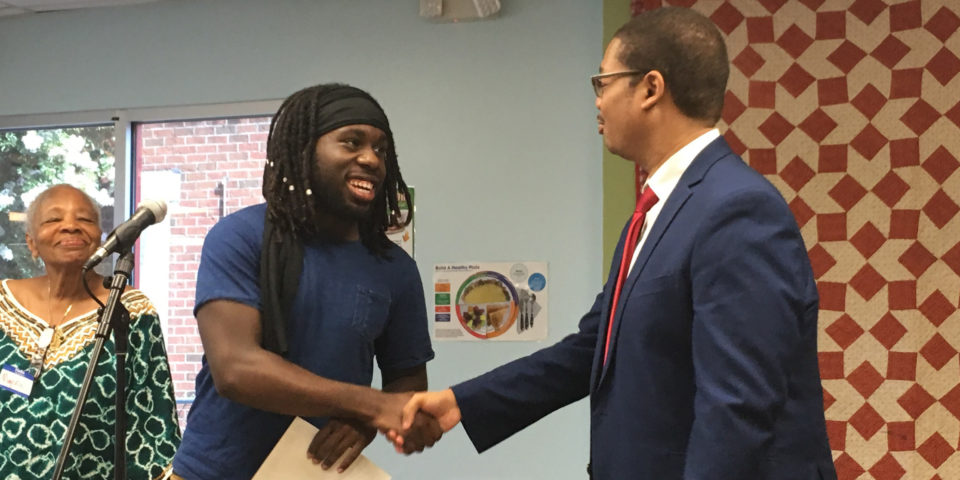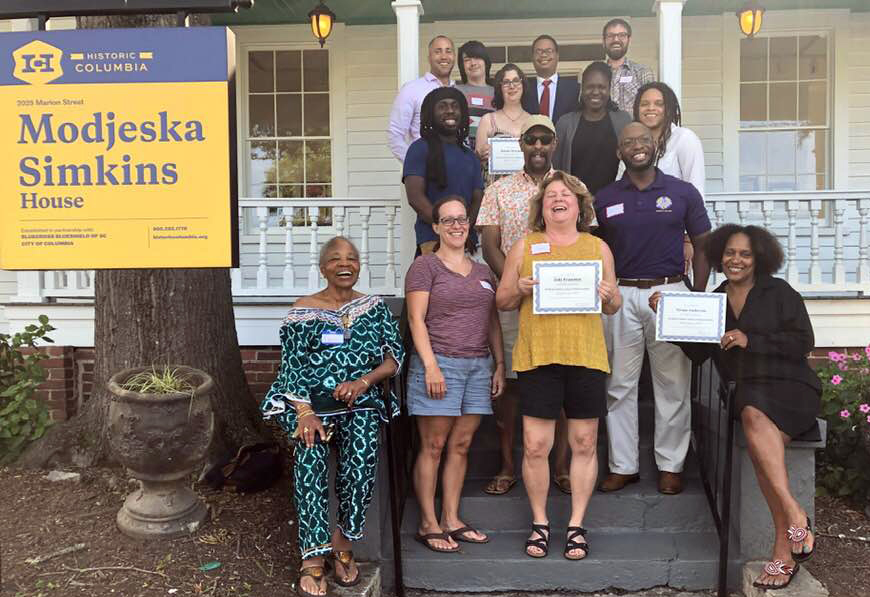
Nearly 75 years ago, Modjeska Monteith Simkins wrote, “It must be conceded that at this very hour more so than at any time in the history of this nation, there is urgent need for the development of progressive thinkers to become the leaders of TOMORROW.”
It was the lead of an appeal Simkins mailed to college students across the state inviting them to attend a Leadership Training School she was helping organize in the summer of 1946 at Harbison College in Irmo.
In 2015 the SC Progressive Network launched the Modjeska Simkins School for Human Rights to honor her legacy and to advance her work for social justice. “We didn’t even know about the leadership institute when we started the school,” said Network Director Brett Bursey, who was mentored by Simkins during the last 18 years of her life. “It was stunning to find out how closely its curriculum mirrored our own, how this history had been lost, and how little things have changed.”
Students learn a people’s history of South Carolina, stories of the resisters who through the years have challenged the state’s unjust laws, culture, and customs. They also learn practical skills to be better citizens and more effective grass roots organizers.
“The Modjeska School pushes its students to think about the importance of history to the here and now,” said the school’s faculty coordinator Dr. Robert Greene II, assistant history professor at Claflin University in Orangeburg. “In an era when facts and experience are constantly under attack, it is important for citizens of South Carolina to understand that every decision, every bill passed, every statement uttered by a politician, has a history.”
South Carolina has long had an over-sized influence on the national stage, in terms of individual players as well as historical significance. The reasons can be traced back to the state’s beginning, a state built on a slave economy and maintained through the centuries by its exploitation of the working class, and its unrelenting resistance to progressive change. Connecting those dots — and understanding what they mean — lies at the core of the school’s curriculum.
Classes cover political and social theory, as well as strategies, tactics, and practical skills for making progressive change. Upon graduation, students work on one of the Network’s ongoing projects or create one of their own.
Among last year’s graduates was Vivian Anderson, who founded Every Black Girl after the attack of a Black child by a school resource officer at Spring Valley in 2015. She wanted to understand the history of South Carolina in order to make her a better organizer. “I do the work I do because I believe in humanity,” she said, “but I really stand for the liberation of Black people and how they define liberation for themselves. I want something different for legacies beyond me.”
Chris Gardner decided to attend the Modjeska School because he wanted to become more effective and strategic in his organizing rather than simply reacting blindly. “I was ashamed to be from Columbia, and as soon as I had a chance I moved away, but I realized I can’t be from somewhere else. Rather than chase greener grass, I thought, who else is going to fix it? There’s not many other people who are going to roll up their sleeves and try to figure things out. It’s up to all of us.”
Dr. Greene said, “Modjeska Simkins, Martin Luther King, Jr., and so many other activists believed in the importance of history to making change in the present. The Modjeska School continues that tradition into 2020. Anyone interested in activism, or simply becoming better informed and more effective citizens, should apply for the Modjeska School. Being well informed is the first step to taking action to make our community, our state, our nation, and our world a better place.”
Enrollment is open for this year’s spring session, which runs March 15 – July 5. Classes will be held on alternate Monday evenings 6:30-8:30 at the SC Progressive Network’s new HQ at 1340 Elmwood Ave., downtown Columbia. For details about the school or to download an application, see the web site.

